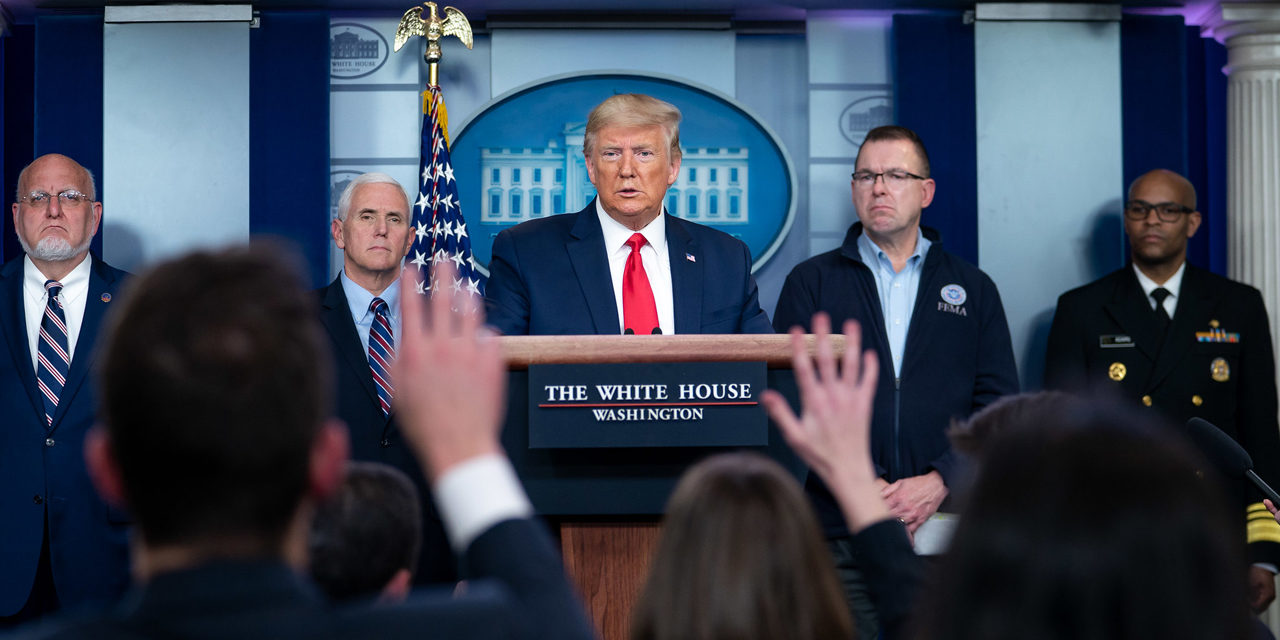U.S. Senate leaders worked with the White House late into the night on Tuesday to craft the third piece of legislation to provide relief for families and businesses affected by the coronavirus shutdown.
Senate bill 3548, the “Coronavirus Aid, Relief, and Economic Security Act” (CARES Act), is still in draft form, but the Senate is working to finalize the more than 240 pages of legislation that touch on everything from employment to laboratory testing, and from education to tax relief.
Sources close to The Daily Citizen said that the CARES Act promises to rush resources to hospitals, doctors and other medical providers. The bill provides funds to expand the use of “telehealth medicine” to diagnose and treat patients. Telehealth medical centers use video conferencing, the internet and other telecommunication technologies to provide medical care at a distance for underserved populations in remote and rural areas.
The CARES Act also gives individuals a direct, one-time payment of up to $1200 – up to $2,400 for married couples and $500 per child – based on income levels from most recent tax returns. The bill also provides grants and loans to small businesses to meet payroll and pay rent and temporarily expands unemployment insurance to provide help for those who have lost jobs.
According to our sources, the bill provides almost $340 billion in emergency funding to federal agencies to combat the outbreak. More than 80% of the money, almost $275 billion, is directed toward state and local governments and communities, funneled through federal departments such as Education, Health and Human Services, Homeland Security, and Veterans Affairs.
Democrats in the House had been working on their own version of the stimulus, H.R. 6379, the “Take Responsibility for Workers and Families Act.” The measure was widely criticized for including provisions unrelated to personal and economic fallout from the COVID-19 shutdown.
House Minority Whip Steve Scalise criticized Democrat House Speaker Nancy Pelosi’s “wish list of far-left policies completely unrelated to coronavirus.” He said, “Democrats are taking advantage of a public health crisis in order to push insane far-left policies like opening up funding for sanctuary cities, same-day voter registration, and funding for climate change studies.”
Scalise listed other unnecessary components of the House bill, such as requiring “airlines to provide passengers with information about greenhouse gas emissions resulting from flights”; demanding that all publicly traded companies “disclose board of director diversity statistics”; and mandating that corporations that apply for federal aid “provide information about policies the company has related to fostering a sense of purpose in the workplace.”
Pelosi defended the 1,400-page House bill, saying, “Everything we’re suggesting just relates to COVID-19.”
The Senate bill was expected to be voted on today, but that seems less and less likely, especially as four Senators recently pointed out a major error in the measure’s language. Senators Lindsey Graham, R-S.C, Tim Scott, R-S.C., Ben Sasse, R-Neb. and Rick Scott, R-Fla., said the CARES Act could harm the economy by paying some workers more in unemployment benefits than they currently receive in wages.
Senator Lindsey Graham said, “If you want to help people, pay them their wages, but don’t pay them more not to work.”
The first piece of legislation to deal with the outbreak was signed by President Trump in early March. The $8.3 billion bill supplied funding for research and development on vaccines, medicines for treatment and diagnostic tests for COVID-19. It also included more than $2 billion to help federal, state and local governments prepare and respond to the virus and provided more than $1 billion to help other countries respond.
The second phase, the Families First Coronavirus Response Act, was signed by the president on March 18. The legislation made testing for the coronavirus free; increased sick leave for employees infected by or caring for others with the virus; increased paid family and medical leave; provided almost $1 billion to states for unemployment assistance; and offered assistance for food and meals for needy families.
Once the CARES Act is finalized, including fixing problems with the unemployment provisions, it will be voted on by the Senate. If approved, it goes back to the House. We’ll keep you posted as the battle over differing versions of the legislation continues.
Related articles:
Senate Democrats Again Shoot Down $1.8 Trillion Emergency Stimulus Bill
Speaker Pelosi Attempts to Fund Abortions Through Coronavirus Bill
Speaker Pelosi Includes Student Loan Cancellation, $15 Minimum Wage in Stimulus Bill






